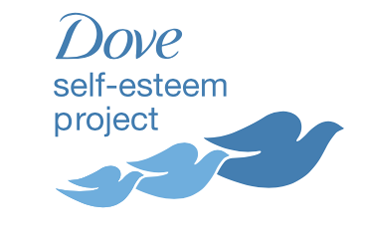LONDON — More than half of all girls do not have high body esteem and are missing out on key opportunities in life, according to a new global report released by Unilever’s Dove brand. The report also found that that higher levels of body esteem can have a lasting impact on a girl’s confidence, resilience and life satisfaction.
 The findings from the 2017 Dove Global Girls Beauty and Confidence Report is based on interviews with over 5,165 girls aged between 10 to 17 across 14 countries. They show that a girl with low body esteem is more likely to succumb to beauty and appearance pressures, and will withdraw from fundamental life-building activities.
The findings from the 2017 Dove Global Girls Beauty and Confidence Report is based on interviews with over 5,165 girls aged between 10 to 17 across 14 countries. They show that a girl with low body esteem is more likely to succumb to beauty and appearance pressures, and will withdraw from fundamental life-building activities.
Dove says that it is running self-esteem programs to help 40 million young people tackle low self-esteem issues and reach their full potential.
“These findings indicate that, despite valiant efforts, body image remains a global issue for girls,” says Phillippa Diedrichs, associate professor from the Centre for Appearance Research, University of the West of England. “We still have an enormous amount of work to do in helping girls develop the resilience they need to overcome the impact of beauty and appearance pressures. We also need to change the social and cultural environment so that girls are not judged on their looks, and are not held back from getting a seat at whatever table they want — be it in the boardroom or in parliament — because of body image concerns.”
While girls show increasing awareness of the media’s role in driving unattainable beauty ideals, the report shows only those with high body esteem seem equipped to respond to these pressures, with 8 in 10 (78%) saying they think they are beautiful even if they are different from what they see in the media. This is compared to only 1 in 10 (12%) girls with low body esteem.
However, the research also uncovers pockets of hope, with 7 in 10 (70%) girls saying there is too much importance on beauty as a source of happiness, and 7 in 10 (68%) saying they wish the media did a better job of portraying women of diverse physical attractiveness, age, ethnicity, shape and size.
And girls are using social media as a platform to confidently express their individuality, with half (51%) saying they feel more confident interacting with people online.
“Girls worldwide are harnessing the power of social media to democratize the beauty narrative whether we are a part of it or not,” says Jess Weiner, cultural expert and adjunct professor at University of Southern California (USC) Annenberg School of Journalism. “They are forming their own online communities to talk about the issues that matter most to their physical and emotional health, and flooding the space with their diverse stories and images – they are becoming the subject of their own stories and not the object of someone else’s.”
The report also shows that 8 in 10 (82%) girls think they have something about them that is beautiful, and nearly all (80%) feel more confident after taking time to do things that make them feel happy about themselves, their bodies and their health, such as reading or exercising.
“It is hopeful to see girls are aware and taking their own steps to create change, but they can’t do it alone,” says Sophie Galvani, global vice president, Dove Masterbrand. “Our research shows that a girl aged 17 is more likely to experience lower happiness and life satisfaction than a 10-year-old. This is a crucial moment in a girl’s life where proactive intervention and support is needed, and that is exactly what the Dove Self-Esteem Project is designed to do – its evidence based tools, interventions and workshops are proven to help build positive body confidence in young people, and ultimately help the next generation reach their full potential in life.”
The research used in the report was conducted by Edelman Intelligence, a specialist applied research firm based in London.




You must be logged in to post a comment Login